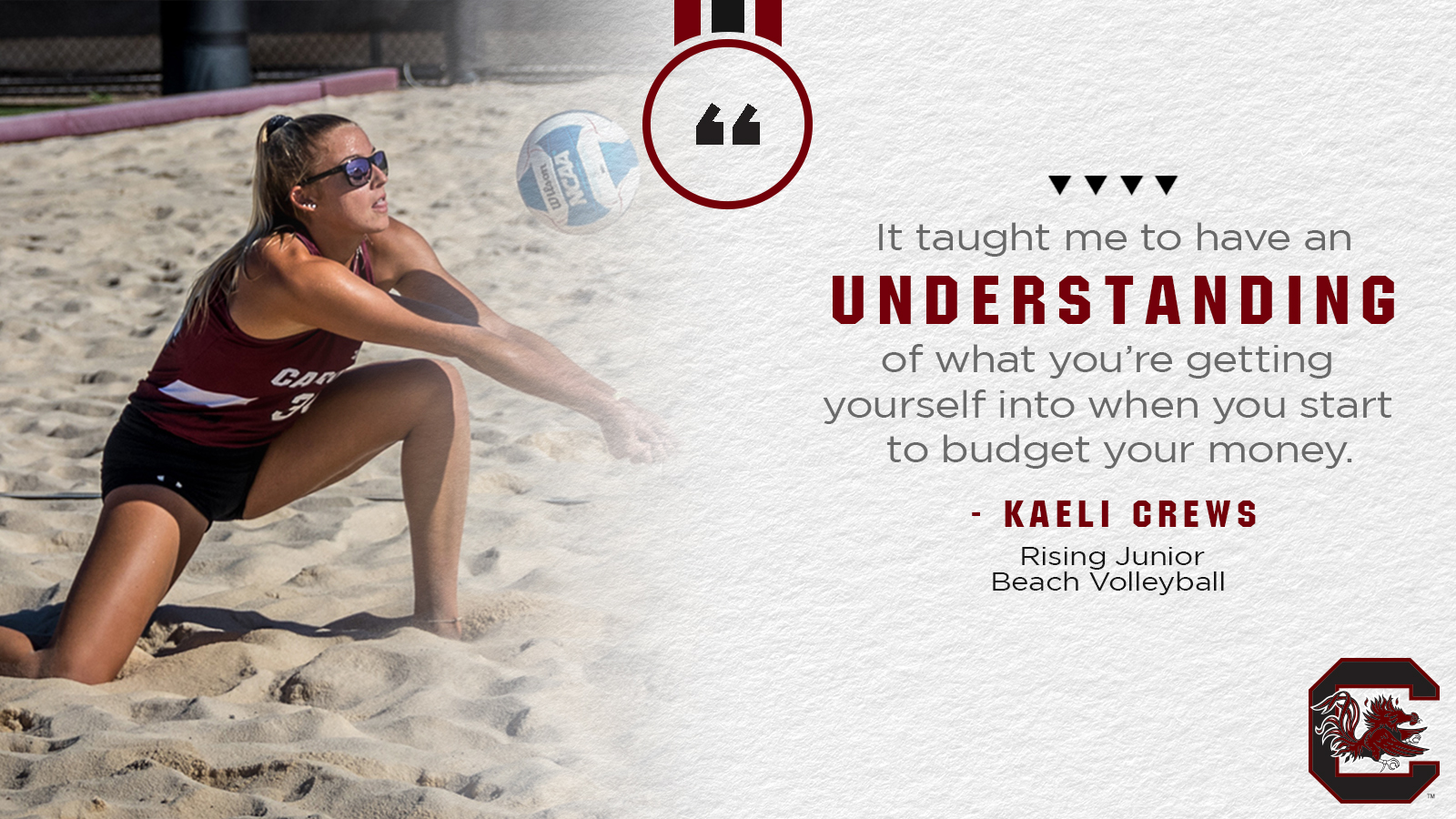
Student-Athletes Learn to Live on a Budget in Beyond Sports Workshop
South Carolina student-athletes learned a lesson in personal money management and staying within a budget on Monday as part of their weekly Beyond Sports Professional Development and Summer Internship programming. Monday’s “Mad City Money” workshop was presented via Zoom by Jessica Banks from Founders Federal Credit Union.
“I definitely learned how to budget more effectively especially since debt and costs are going to increase more after graduation, and I have to become more independent financially,” said David Olds, a rising senior on the track and field team, who is studying geography and political science.
“I learned the importance of budgeting,” said Kaeli Crews, a rising junior sport and entertainment management major on the beach volleyball team. “I’ve seen my parents do it my whole life, but not to the extent that I saw after doing the workshop.”
Banks, a former volleyball student-athlete at Virginia Intermont College and currently a financial education representative at Founders Federal Credit Union, put the Gamecocks through a realistic financial exercise where each was assigned a full-time job and salary along with other individual life details such as having a spouse and children. It was then up to each student-athlete to make choices on various living expenses such as paying a mortgage or rent, transportation, groceries, entertainment, and various utilities, among others, as well as unexpected bills, while staying within the budget of their salary.
“You have a brand-new life, and you have bills.”
– Jessica Banks
“You are going to buy a house,” Banks told the student-athletes. “There’s transportation, so you have to buy a car. There are meals to feed your family. You have to put stuff in your home, clothing and all that stuff. Everything you do in this class is what you should do in the real world once you have a steady job and steady income. The first thing you have to figure out is how much money you make each month.
“You have a brand-new life, and you have bills.”
For the student-athletes, the cost of some expenses was eye-opening.

David Olds
“It could be a little bit overwhelming,” Crews said. “The mortgage payment can be a bit of a shock. Having to buy cars for me and my spouse (in the exercise), and then the grocery bill was pretty high, too! I didn’t expect that.”
“It’s expensive to have kids,” Olds said with a laugh. “Shout out to my mom for making that happen! That was a shock. The sacrifices you have to make across the board, whether it’s your living situation or the groceries you bring home every week, there are definitely some things you can’t spend as much money on. You can’t always be as comfortable as you’re hoping to be.”
“Now I got a feel for what adulthood feels like,” quipped Stephanie Davis, a senior from the track and field team, in the group chat.
The student-athletes also learned the importance of paying off credit card debt and at least paying the minimum payment each month if they can’t pay it off all at once so they can avoid damaging their credit score and running up large interest fees.
“Whenever you get a loan, whatever it is, you do have to pay it all back,” Banks said. “You don’t have to pay it all back right away. It’s always good to pay off debt if you can. You don’t want to pay off debt and have it leave you in a bind either. You never want to get to the point where you can’t pay back the minimum amount. It’s not ideal. If you get to that point, you have to reevaluate your spending. You absolutely have to pay your minimum payment, but if you can afford to pay more, that’s smart to do because you’re going to be paying the company’s interest.
“Looking at some of the debt, whether it’s credit card debt or student-loan debt with the various expenses, it gave me picture of what that situation can look like after graduation,” Olds said. “In my (mock) situation, I came out pretty close to even, so hopefully this exercise will help me stay that way after I graduate.”
“I came out ahead (in the exercise),” Crews said. “It taught me to have an understanding of what you’re getting yourself into when you start to budget your money. You can’t always be lavish with your spending. It’s OK to buy yourself some nice things, but you have to balance what you do.”












